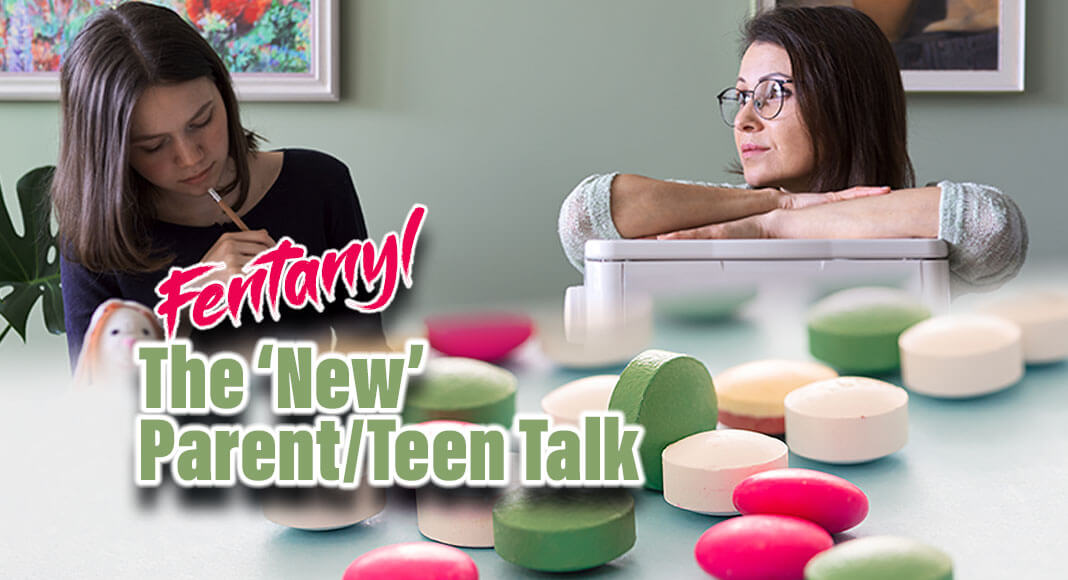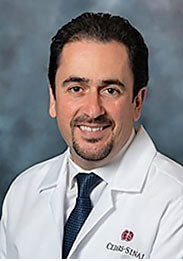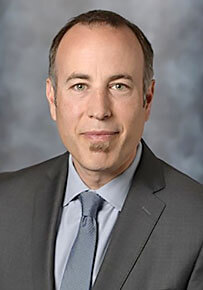
Mega Doctor News
By Cedars-Sinai

Newswise — LOS ANGELES (March 8, 2023) — Parents have a new—and deadly—reason to sit down with their tweens and teens for a talk about drug abuse. The reason: fentanyl.
Although the U.S. Centers for Disease Control and Prevention reports that deaths due to overdoses from the synthetic opioid and related drugs are on the rise nationwide, many children’s overdoses are accidental and often because the children who took the drug didn’t know what they were swallowing.
“Every day, I see patients who come in, and when we talk about what it is that happened to them, many of them are surprised because they had no idea that fentanyl was in what they ingested,” said Sam Torbati, MD, co-chair of the Department of Emergency Medicine and medical director of the Ruth and Harry Roman Emergency Department.

The Cedars-Sinai Newsroom sat down with Torbati and Itai Danovitch, MD, chair of the Department of Psychiatry and Behavioral Neurosciences, to learn what makes fentanyl so deadly, and how parents can prevent overdoses by talking to their children about its dangers.
Newsroom: What is fentanyl and why is it so dangerous?
Danovitch: Well, fentanyl is a synthetic opioid. It’s a certain type of opioid that was originally developed for medical use, for the treatment of pain. But it’s a very potent opioid that is now being manufactured illicitly and has penetrated the black market. What’s really, really prominent about fentanyl is that because it’s so potent, it can cause respiratory depression and cause people to die by overdose.
Newsroom: How widespread is the problem of fentanyl overdoses?
Danovitch: In 2021, over 100,000 people in the U.S. died of drug overdoses. It’s estimated that about two-thirds of those involved fentanyl or other synthetic opioids. About 150 people each day die from fentanyl overdoses, most of which are unintentional and accidental overdoses.
Newsroom: What trends are you seeing in the Emergency Department?
Torbati: Over the last few years, we’ve seen trends where more and more individuals who are victims of this overdose had no idea that fentanyl was in what they took. Every day, I see patients who come in, and when we talk about what it is that happened to them, many of them are surprised because they had no idea that fentanyl was in what they ingested.
Newsroom: What are the signs of a fentanyl overdose?
Torbati: So, early on, a fentanyl overdose, just like any opiate overdose, causes the individual to become sleepy. Their speech will be slurred. They may have difficulty staying awake. They may have difficulty, obviously, in standing up, and then they’ll fall asleep. If anybody sees anybody else in the setting of drug use falling asleep, and can’t be aroused, that’s a very, very dangerous symptom. And that needs to be addressed immediately.
Newsroom: What can people do if they suspect someone they know has overdosed?
Danovitch: If you have concerns about any of this, if a young person becomes unresponsive, or has irregular breathing, it’s important to call 911 immediately. If one has naloxone, it’s important to administer it. Naloxone is an opioid reversal agent that for a brief period of time reverses overdose. And it buys some time for emergency responders to come and administer more treatments.
Newsroom: How can parents talk to their children about fentanyl?
Danovitch: When talking about any sensitive subject, it’s really good to begin by listening. It’s good to begin by asking our kids what they know, and what they believe, and make sure that we stop and that we listen to them, and that we’re patient. Conversations about this stuff, which can be difficult for us as parents, can be awkward to have. The conversations don’t need to happen all at one time. Sometimes they happen little bits over time, and what’s most important is that we create an atmosphere where kids can talk to us and let [us] know what they think.
Certainly, by the time our kids are teenagers, it’s important to have very forthright conversations about this stuff and the risks … discussing how to recognize risks and problems and what to do about them, which also means talking about practical ways to reduce harm.









